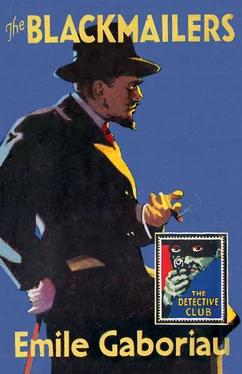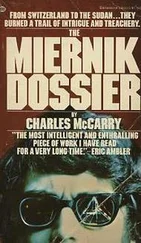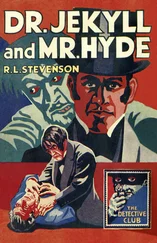‘No, sir.’
‘You say you are innocent, so M. Fauvel must be the criminal.’
Prosper made no answer.
‘Have you,’ M. Patrigent insisted, ‘any reason to think your employer robbed himself? Tell me it, however trifling it may be.’
As he made no reply the magistrate said:
‘I see you still need time for reflection. Listen to the reading of your evidence, and after you have signed it you will return to prison.’
The cashier was overwhelmed by these words. He signed the statement without hearing a word of the reading and staggered so on leaving the courtroom that the warder told him to lean upon him and take courage.
His examination was a formality carried out in obedience to the law, which ordered that a prisoner was to be examined within twenty-four hours of his arrest.
Had Prosper remained an hour longer in the gallery, he would have heard the same usher call out ‘number three’.
The witness who was number three was sitting on the bench in the person of M. Fauvel. He was a changed man. His ordinary benevolence had disappeared and he was full of resentment against his cashier.
He had hardly answered the usual questions before he launched out into such recriminations and invectives against Prosper that the magistrate had to silence him.
‘Let us take things in their proper order,’ he said to M. Fauvel, ‘and please confine yourself to answering my questions.
‘Did you doubt your cashier’s honesty?’
‘Certainly not; and yet a thousand reasons might have led me to do so.’
‘What reasons were they?’
‘M. Bertomy, my cashier, gambled and sometimes lost large sums. On one occasion, with one of my clients, he was mixed up in a scandalous gaming affair, which began with a woman and ended with the police.’
‘You must admit, sir,’ the magistrate said, ‘you were imprudent, if not culpable, to entrust your cash to such a man.’
‘But, sir,’ M. Fauvel replied, ‘he was not always like it. Till a year ago he was a model. He resided in my house and I believed him to be in love with my niece Madeleine.’
M. Patrigent had a way of knitting his brows when he thought he had made a discovery.
‘Perhaps that was the reason of his departure?’ the magistrate asked.
‘Why,’ the banker replied with a surprised look, ‘I would have willingly given him my niece’s hand, and she is a pretty girl with money.’
‘Then you can see no motive in your cashier’s conduct?’
‘Absolutely none,’ the banker replied, after a little thought. ‘I always thought he was led astray by a young man he knew at that time, M. Raoul de Lagors.’
‘Who is he?’
‘A relative of my wife’s, a charming fellow, but rich enough to pay for his amusement.’
The magistrate did not seem to be listening, he was adding Lagors to his long list of names.
‘Now,’ he resumed, ‘you are sure the robbery was not committed by anyone in your house?’
‘Quite sure, sir.’
‘Your key was never out of your possession?’
‘Very rarely; and when I did not carry it, it was in one of the drawers in my desk.’
‘Where was it on the evening of the robbery?’
‘In my desk.’
‘But then—’
‘Excuse me, sir,’ M. Fauvel interrupted, ‘but may I mention that with a safe like mine the key counts for little. One must know the word at which to set the five movable buttons.’
‘Did you tell anyone the word?’
‘No, sir. Besides, Prosper changed the word when he felt so disposed. He used to tell me and I often forgot.’
‘Had you forgotten it on the day of the robbery?’
‘No; the word was changed the previous evening, and its strangeness struck me.’
‘What was it?’
‘Gypsy. G-y-p-s-y.’ (The banker spelt it.)
This word M. Patrigent also wrote down.
‘One more question, sir,’ he said. ‘Were you at home the evening of the robbery?’
‘No, sir; I dined and spent the evening with a friend. When I returned, about one o’clock, my wife was in bed and I retired at once.’
‘You are not aware of the sum of money in the safe?’
‘No. My orders were that only a small sum should be kept there.’
M. Patrigent was silent. The important fact to him seemed to be that the banker was not aware there was 350,000 francs in the safe, and Prosper exceeded his duty in withdrawing it from the bank. The conclusion seemed obvious.
Seeing that he was not to be asked any more questions, the banker considered it a good opportunity to say what he had on his mind.
‘I consider myself above suspicion,’ he began, ‘but I shall not sleep in peace till the robbery is brought home to my cashier. The sum is quite a fortune, and I shall be glad if you will examine my business affairs and see that I have no object in robbing myself.’
‘That will do, sir,’ the magistrate interposed; ‘sign your statement, please!’
After the banker had gone, the clerk remarked:
‘It is a very obscure affair; if the cashier is firm and clever it will be difficult to convict him, I think.’
‘Perhaps,’ the magistrate replied, ‘but I will examine the other witness.’
Number four witness was Lucien, M. Fauvel’s eldest son. He was a fine fellow of twenty-two, who said he was very fond of Prosper and looked upon him as an honest man.
He said he could offer no explanation as to why Prosper should commit the theft. He was sure he did not gamble as much as people made out and did not live beyond his means.
With regard to his cousin Madeleine he said:
‘I always thought Prosper loved Madeleine and would marry her. I always attributed Prosper’s departure to a quarrel with her, but I felt sure they would make it up.’
Lucien signed his statement and withdrew.
Cavaillon was the next to be examined. He was in a pitiful state, but determined to repair the mistake he made the previous day if possible.
He did not exactly accuse M. Fauvel, but he said he was a friend of the cashier, and as sure of his innocence as of his own. But unfortunately he had no evidence to support his statement.
Six or eight of the bank staff also made statements, but they were not important.
One of them gave a detail which the magistrate noted. He made out that he knew that Prosper had made a good deal of money on the Stock Exchange through M. Raoul de Lagors.
After the witnesses had concluded M. Patrigent sent the usher to find Fanferlot, which he did after some delay. The detective gave an account of the incident of the letter, which he was able to produce, having stolen it from Madame Gypsy, and furnished a number of biographical details he had gathered concerning Prosper and Madame Gypsy.
At the conclusion of the detective’s story M. Patrigent murmured:
‘Evidently the young man is guilty.’
This was not Fanferlot’s opinion, and he was pleased to think the magistrate was upon the wrong track.
After he had furnished all the information possible, the detective was dismissed, the magistrate telling him to keep a careful eye upon Madame Gypsy as she probably knew something about the money.
The next day the magistrate took the evidence of Madame Gypsy and recalled M. Fauvel and Cavaillon. Only two of the witnesses who had been summoned failed to appear; the first was the messenger Prosper sent to the bank, who was ill, and M. Raoul de Lagors.
CHAPTER V CONTENTS COVER TITLE PAGE COPYRIGHT INTRODUCTION CHAPTER I CHAPTER II CHAPTER III CHAPTER IV CHAPTER V CHAPTER VI CHAPTER VII CHAPTER VIII CHAPTER IX CHAPTER X CHAPTER XI CHAPTER XII CHAPTER XIII CHAPTER XIV CHAPTER XV CHAPTER XVI CHAPTER XVII CHAPTER XVIII CHAPTER XIX CHAPTER XX CHAPTER XXI CHAPTER XXII CHAPTER XXIII CHAPTER XXIV CHAPTER XXV ABOUT THE BOOK THE DETECTIVE STORY CLUB ABOUT THE PUBLISHER
Читать дальше












